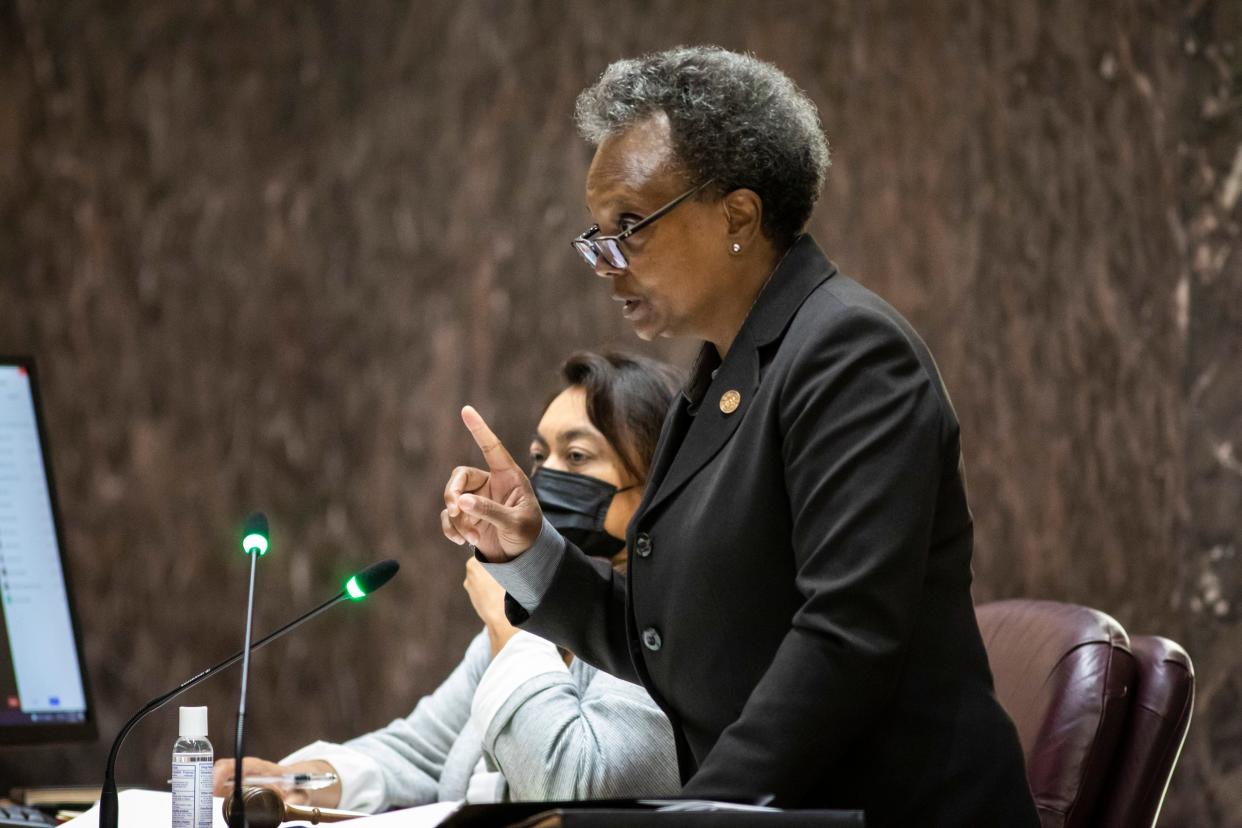'Protecting every single resident': Chicago approves new layer of civilian police oversight

CHICAGO – City leaders approved a new layer of civilian police oversight Wednesday after years of protests against officer misconduct.
The City Council voted 36-13 to pass an ordinance calling for the creation of a seven-member Community Commission for Public Safety and Accountability. The commission will be comprised of people nominated by three-member councils of Chicago's 22 police districts and appointed by the mayor.
For decades, Chicago's police department has been besieged by claims of misconduct and corruption, with many elected officials and civilians alike calling for reforms and new methods to hold police accountable.
Under the ordinance, the commission can vote to remove the police superintendent, but the mayor can reject the recommendation. When the position is vacant, the commission can nominate three people, but the mayor can select one or reject them all, restarting the process.
The commission can also vote to remove the chief administrator of the Civilian Office of Police Accountability, which investigates police-involved shootings and allegations of wrongdoing. The chief administrator can be removed if the City Council approves.
Under the ordinance, the commission can draft new police policies, but the mayor can veto the policies. A two-thirds City Council vote could override the mayor.
Chicago Police study: White officers use force more often
Jan. 6 US Capitol attack: Chicago police officer who vowed to 'save the nation' arrested for alleged role
Dozens of people affiliated with a grassroots coalition of groups pushing for civilian oversight of police gathered for a celebration of the passage outside the Thompson Center in downtown Chicago Wednesday.
"We did it," said Desmon Yancy, director at the Inner-City Muslim Action Network in Chicago, standing beside his son. "And we did it because all of us played a role in this."
Nate Sanders, with Southsiders Organized for Unity and Liberation, called the ordinance "the first step in achieving the ultimate goal, which is to provide public safety."
"It starts the process of giving oversight of the police to the communities that the police are supposed to be keeping safe. It the first of its kind to give the victims of police misconduct a voice on who can police and how policing happens," Sanders said.
Chicago Mayor Lori Lightfoot, a former assistant U.S. attorney, said in a statement Wednesday she was "beyond thrilled to give our residents further opportunities to hold those who are sworn to protect and serve them accountable."
"Legitimacy is key to the work that our police do," Lightfoot said during City Council. "If the communities do not trust them because they’re not legitimate to them, they will not be effective in their most core mission, which is serving and protecting every single resident of this city."
Prior to the City Council’s vote, the president of Chicago's police union, John Catanzara, said the department is already under multiple layers of oversight provided by the city’s Police Board, the Civilian Office of Police Accountability, the police department’s Internal Affairs Division and the Illinois Attorney General’s office.
"Another layer of oversight is just ridiculous. It’s only going to make coppers more (angry) because more oversight means, 'You’re doing something wrong. You need to be watched because you’re not doing something right,'" he said.
False confessions: Illinois passes bill banning law enforcement from lying to minors during interrogations
Policing: Officers speak to Black drivers less respectfully, study finds. Here's why it matters
The 7-member commission will take effect Jan. 1, 2022, and be made up of Chicago residents, with no citizenship requirements. The 3-member district councils, which nominate the members of the citywide commission, will be elected by the district residents through a consolidated primary election, starting in February 2023.
Alderman Carlos Ramirez-Rosa said the ordinance was "decades" in the making. He said the movement for community control of police was "revitalized" after the 2014 murder of Laquan McDonald, the Black 17-year-old killed by a white Chicago police officer who shot him 16 times.
The city released video of the shooting a year later, sparking nationwide outrage, and the Justice Department launched an investigation into the Chicago Police Department. The investigation found the department is beset by widespread racial bias, along with excessive use of force, poor training and feckless oversight of officers accused of misconduct.
Several aldermen also invoked the name of Adam Toledo Wednesday. Toledo, 13, was fatally shot by a Chicago police officer one early morning last March as he dropped a gun and turned toward the officer with his hands up.
Lightfoot acknowledged the ordinance Wednesday "will not solve all problems." She added: "There is much more work to be done."
Lightfoot, who took office in May of 2019, initially pledged to pass an ordinance establishing civilian oversight of police in her first 100 days.
Contributing: Associated Press
This article originally appeared on USA TODAY: Chicago approves new civilian police oversight commission

